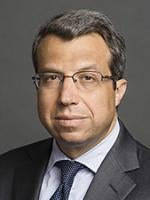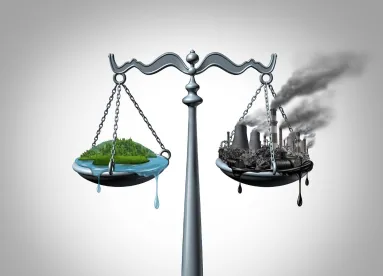On February 9, Treasury Secretary Janet Yellen spoke at the Center for Strategic and International Studies, urging the World Bank to “evolve” and be “bolder and more imaginative” in its operational approach to tackling global challenges such as climate change. She proposed that the World Bank “expand its vision” to include addressing these global challenges. According to Secretary Yellen, the problem lies in multilateral development banks’ (MDBs’) “core model,” which involves countries borrowing to make specific investments aimed at addressing development constraints in their own countries. That model is insufficient to meet the moment. Such a model will always underinvest in addressing global challenges – since the benefits of investments in global challenges stretch far beyond the borders of the country where a given project takes place.” As a result, the Secretary contended that the World Bank and other MDBs urgently needed to change, given declining progress in their “core mission of poverty reduction and inclusive economic growth.”
Yellen referenced a 2022 G20 report on development banks’ capital adequacy frameworks, explaining that it provided a “solid blueprint” for the World Bank to “boost its financial capacity by responsibly stretching its existing financial resources.” She highlighted several “promising ideas for exploration,” which included the increased securitization of private sector portfolios and piloting the issuance of subordinated debt instruments. She also requested that the World bank identify “concessional resources available to countries to tackle global challenges,” explaining that these resources could “incentivize the decommissioning of coal plants and protect displaced workers during a clean energy transition.”
A spokesperson for the World Bank responded to Yellen's remarks, stating that the lender appreciates support from the U.S. and other shareholders "for finding ways to ramp up development finance to meet global challenges such as climate change, fragility, and pandemics. We see this support as a recognition by the global community of the World Bank’s longstanding responsiveness and effectiveness, and we always welcome new ideas.”
Notably, on February 23, President Biden nominated former Mastercard, Inc. CEO, Ajay Banga, to be the next World Bank president. President Biden stated that Banga is “uniquely equipped to lead the World Bank at this critical moment in history” and highlighted Banga’s “critical experience mobilizing public-private resources to tackle the most urgent challenges of our time, including climate change.” Yellen also publicly offered her support of Banga.
Taking the Temperature: Secretary Yellen’s speech clearly reflects a view that the World Bank should be more aggressive in addressing various global challenges, including climate change. Her public backing of Banga’s nomination supports her view, which makes sense given the massive investment required to transition to a green economy. While inherently uncertain, The World Economic Forum has estimated that it will require approximately $3.5 trillion more spending per year in order to achieve net zero by 2050 (and that does not take into account addressing harm already caused by climate change). Equally difficult is the question of which countries should pay. At the mitigation-focused COP27 in November in Egypt, the almost 200 countries in attendance reached an agreement to establish a dedicated fund to assist developing countries respond to loss and damage caused by climate change. “Loss and damage” refers to the concept that wealthier nations, which have been the largest emitters of greenhouse gas emissions, should compensate developing nations for harm caused by climate change. Likewise, at the COP15 biodiversity conference in Montreal in December, the main area of contention involved how to pay the costs that will be incurred to realize the Global Biodiversity Framework’s (GBF) goals. The parties ultimately agreed to establish a global biodiversity fund with contributions of $20 billion/year by 2025 and $30 billion/year by 2030, from the existing United Nations Global Environmental Facility (GEF). The GBF also included pledges to cease at least $500 billion a year of subsidies for activities deemed harmful to nature such as agriculture and fishing. And, it bears mention that the World Bank has not been absent in terms of support for climate-related efforts. The Bank, along with other MDBs, is among the largest sources of funding for developing countries. In a statement released at COP27, the MDBs stated that in 2021 they “delivered $51 billion in Low and Middle Income Countries, of which $33 billion (65%) was for mitigation and $18 billion (35%) for adaptation; and $31 billion in High Income Countries, of which 95% was for mitigation and 5% for adaptation. In addition $41 billion of private finance was mobilised in parallel.”





 />i
/>i

